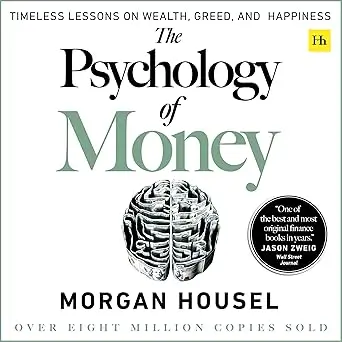Budgeting is Being Responsible
Many people believe that following your budget is being stingy, but it's actually the opposite, following a budget is being responsible.
There's a common misconception that budgeting means restricting yourself, saying no to everything fun, and living a life of deprivation.
In reality, budgeting is one of the most liberating financial tools you can use. It's not about limitation; it's about intentionality.
When you budget, you're taking control of your money instead of letting it control you.
The True Benefits of Budgeting
Budgeting provides clarity about where your money is going. Without a budget, it's easy to reach the end of the month wondering where all your income disappeared to.
With a budget, every dollar has a purpose, whether that's paying bills, saving for the future, enjoying entertainment, or helping others.
Financial stress decreases significantly when you have a budget in place. You're no longer making reactive decisions based on fear or uncertainty.
Instead, you're making proactive choices aligned with your values and goals. This sense of control reduces anxiety and helps you sleep better at night.
Perhaps most importantly, budgeting enables you to achieve your financial goals faster. Whether you're saving for a home, planning a vacation, building an emergency fund, or preparing for retirement, a budget acts as your roadmap.
It shows you exactly how much you can allocate toward these goals each month, turning dreams into achievable milestones.
Budgeting for Generosity
One of the most overlooked benefits of budgeting is that it actually makes you more generous, not less.
When you don't have a budget, giving to charity or helping others often feels risky—you're not sure if you can afford it.
But when you have a clear picture of your finances, you can confidently set aside money for giving.
Creating a dedicated category in your budget for charity and helping others transforms generosity from an afterthought into a priority.
You might allocate 5%, 10%, or whatever percentage feels right for your situation. The amount matters less than the intentionality behind it.
With a giving budget, you can support causes you care about consistently rather than sporadically.
You can sponsor a child's education, contribute to your local food bank, support disaster relief efforts, or help a friend in need, all without the guilt or worry that comes from unplanned spending.
Your generosity becomes sustainable because it's built into your financial plan.
This approach also allows you to be more strategic with your giving. You can research organizations, plan for end-of-year donations, or save up for larger contributions that make a meaningful impact.
Budgeting doesn't make you stingy; it makes you a more effective and reliable giver.
Getting Started with Your Budget
Creating a budget doesn't have to be complicated. Start by tracking your income and expenses for a month to understand your spending patterns.
Then, categorize your expenses into essentials (housing, food, transportation), savings, debt repayment, discretionary spending, and giving.
The key is finding a system that works for you. Some people prefer the envelope method, others like zero-based budgeting, and many find success with spreadsheet templates that automate calculations and help visualize their financial picture.
If you're looking for a practical tool to get started, I've created Excel and Google Sheets budgeting templates that make the process simple and straightforward.
You can find them at Budget Templates. These templates include all the categories you need, including a dedicated section for charitable giving, so you can start managing your money with confidence.
The Bottom Line
Budgeting is an act of responsibility and self-respect. It's saying that you value your financial future enough to plan for it.
It's ensuring that you can take care of yourself, your family, and contribute to causes that matter to you.
Far from being restrictive, a budget is actually freedom—freedom from financial stress, freedom to pursue your goals, and freedom to be generous in ways that align with your values.
The question isn't whether you can afford to budget. It's whether you can afford not to.
Ready to Take Control of Your Finances?
Download our free budgeting templates and start your journey to financial freedom today.
Get Your Free Template
